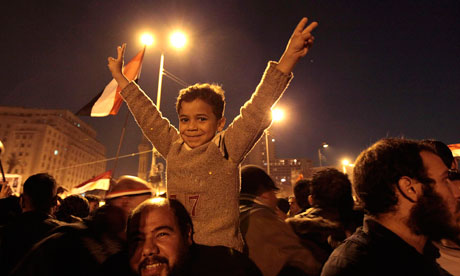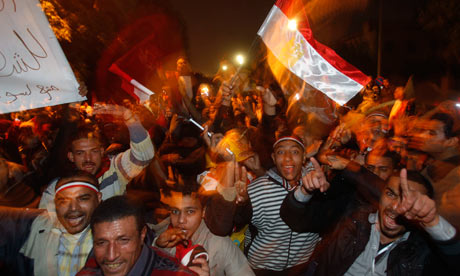Emotion, collective action and social change.
Social scientific accounts of crowd behaviour used to treat emotions and meaningful political aims as polar opposites. On the one side there were crazes, fads, riots, mass hysteria, mass panics and so on. On the other there was the lone individual, bastion of rationality and logical decision-making. 'Politics' could only take a collective form through the highly structured and organized machinery of the political party system, and collective pressures could only be exercised within the system through trade unions, lobby groups and other institutionalized forms of representation.
This dichotomy between the crowd and politics was a legacy of the ideas of Gustave Le Bon and those others who, in late 19th century Europe , sought to develop a theoretical tool to combat 'the mob', which was seen as a threat to the established order. The distinction between emotion and 'rationality' was reproduced in the 'collective behaviour' tradition in psychology and sociology, and even remained in the (badly) hidden assumptions of ultra-rationalist resource mobilization theory.
The social identity approach began as a 'cognitive' reaction against those 'irrationalist' theories that explained collective action in terms of primitive emotions or instincts (such as frustration-aggression). In the past 10-15 years, however, there has been a concerted attempt by social identity researchers to restore the place of emotions in the understanding of group and intergroup life. Alongside conceptual advances - like the acknowledgement that emotions entail 'knowledge', and that knowledge can be 'hot' - there are very many empirical studies which now converge around the view that emotions are important causes and consequences of collective action.
Anger and collective action
Group-based emotions, such as anger, can be determined by how the group interprets an intergroup event. Feelings of 'injustice', and hence anger at intergroup events, are a key predictor of collective action, as they motivate the group to confront those responsible.
This can be seen in the recent protests in Egypt
Empowerment and collective action
Commentators and participants suggested that Egyptians were inspired by the uprising in Tunisia , which occurred only weeks before (just as those in Libya , Bahrain and other places are being inspired by Egypt Tunisia
So, in the language of social psychology, there was not only a sense of 'injustice' but also a sense of efficacy: of power.
Day 4 of the Egyptian uprising (28/01/11):
SHARIF ABDEL KOUDDOUS: "Ahmad, what effect has the uprising in Tunisia that led to the ousting of President Ben Ali had on protests in Egypt
AHMAD SHOKR: "Well, I think it’s left people really inspired. And it’s you know, many people, for the first time, believe that revolution is possible, that political change from the street is something that can happen. [ ] there’s no doubt that people have definitely been incredibly inspired. I mean, people that I know personally, who just a few weeks ago would have never thought to set foot in a demonstration, who were, for the most part, completely depoliticized, are taking to the streets, are fired up and believe that being on the streets and calling for change can actually do something, can actually make a difference right now."
The subjective sense of power - empowerment – is a predictor of collective action. Importantly, it can also be a result of collective action. The concept of empowerment contains 'efficacy', but it is more than that. It implies (positive) emotion as well as cognition. And it refers to a social relationship of unequal power (that feels bad) which is challenged or overcome (which feels good).
The pictures coming out of Egypt
‘In Tahrir Square, we lost our fears and found ourselves’
The Observer, Sunday 13 February 2011
Day 18 - Mubarak flees (11/02/11)
ANJALI KAMAT: "I can’t explain to you what the mood is like here. It’s indescribable. People are just crying with happiness. They’re jumping up and down, so proud to be Egyptian, so proud of what they’ve achieved over the past two weeks. Everyone’s talking about how they did this in nineteen days. People are just ecstatic. They’re doing cartwheels in the middle of the street. They’re jumping up and down. Whole families are coming from across Cairo
The Elaborated Social Identity Model explains this relationship between empowerment and emotion by suggesting that acting to change the world in a way congruent with our identity gives us a sense of agency. We can see that we are agents (not mere objects) through our own action and its impacts. Just as alienation is aversive, so agency feels good. It feels joyful. It makes us happy. It has even been shown to be a predictor of health outcomes, such as lowered blood pressure and enhanced immune functioning.
'I have friends on anti-depressants who, over the last 20 days, forgot to take their pills and have now thrown them away. Such is the effect of the Egyptian Revolution'
http://www.bbc.co.uk/news/world-middle-east-12393795
Empowerment: collective joy as politics
The role of positive emotion has received much less attention in the research literature on collective action than negative emotions such as anger and grievance. This is somewhat surprising given how prominent positive emotions are in the subjective accounts of collective actors. When they talk to us about collective actions that succeeded in some way – actions that were congruent with their collective identities – they are joyful; they beam and smile and laugh. They feel happy at the sheer memory. And they refer to 'empowerment'.
‘Empowerment’ is a term and an idea with its roots in movements for progressive and even revolutionary social change. Despite its co-option by management and business (try a Google search and see what I mean), the term is still meaningful to a lot of people involved in social movements.
Despite the claims of Le Bon that crowd power is 'illusory', the phenomenological - the subjective, the experiential - and the objective world of real social relations of power are connected in the crowd. Empowered collective identities are that connection. The more people that feel joyful, confident and positive about collective action to change their world in a direction defined by their shared identity, the more such action will take place.
Mubarak's resignation prompted celebrations in Tahrir Squarein Cairo
Photograph: Suhaib Salem/Reuters
When it occurs, successful collective action feels like a form of self-realization – except that the self is that of the wider group (not just the individual), and the aims realized might only have emerged in the course of the struggle (rather than pre-existing the struggle as an ‘essence’). Either way, the experience is positive, exhilarating, uplifting. It is to be a subject of history rather than a cog in a machine:
Day 17, the day before Mubarak’s 'resignation' (10/02/11)
AHDAF SOUEIF: "I think what has happened here is that people have they’ve found their voice, and they’ve found their personality. In other words, there is a definite sense that this regime had been not only robbing people of their country, but had been alienating people from their own personalities. And now they have found it. And you see people saying, "They told us we were divided. They told us we’re extreme. They told us we’re ignorant. But here we are, and we’re great." And this is why this is just not going to go away."
If we are right that emotions and meaningful political aims are not after all polar opposites but interconnected, then the crowd can be understood as a conscious agent of social change and not merely a symbolic outburst.
By John Drury and Sanjeedah Choudhury
References
Drury, J., Cocking, C., Beale, J., Hanson, C., & Rapley, F. (2005). The phenomenology of empowerment in collective action. British Journal of Social Psychology, 44, 309-328.
Drury, J., & Reicher, S. (2009). Collective psychological empowerment as a model of social change: Researching crowds and power. Journal of Social Issues, 65, 707-725.
Van Zomeren, M., Postmes, T., & Spears, R. (2008). Toward an integrative Social Identity Model of Collective Action: A quantitative research synthesis of three socio- psychological perspectives. Psychological Bulletin, 134, 504 - 535.

